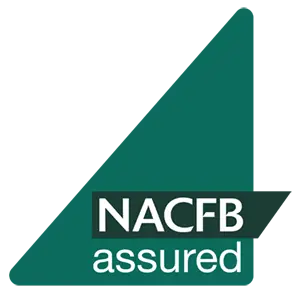If you’re new to the concept of equity-release mortgages, you’re not alone. Many people are unfamiliar with this financial tool that can help homeowners access the equity tied up in their homes. In this article I explore the world of equity release mortgages, what they are and how they can benefit homeowners, especially those aged 55 and above.
What is an Equity-Release Mortgage?
An equity-release mortgage, also known as later-life lending, allows homeowners to unlock the value of their property to meet various financial needs. The amount you can release is determined primarily by the value of your property and your age.
There are several reasons why someone might consider an equity-release mortgage:
Care Needs: Some individuals use the released equity to cover the costs of care services as they age.
Retirement Planning: Equity release can be a crucial part of retirement planning, providing financial security in your golden years.
Lifestyle Enhancement: Others use it to fund lifestyle improvements or dream vacations.
Debt Repayment: In some cases, homeowners use equity-release mortgages to pay off existing lenders. For instance, if you have an interest-only mortgage and your lender demands repayment, but you lack the savings to cover it, equity release can be a solution.
It’s important to note that equity-release mortgages do not require monthly repayments. Instead, interest accumulates over time, which can result in the compounding of interest payments.
What are the Risks and Considerations for Homeowners When Thinking About Equity Release?
Before choosing an equity-release mortgage, it’s crucial to be aware of the potential risks and considerations. One of the primary concerns is the impact of compound interest, which can significantly increase the amount owed over time. It’s essential to ensure that everyone in the family is aware of the financial commitment to avoid disputes in the future.
Due to the complexity of equity-release mortgages and their potential impact on vulnerable individuals, it’s essential to work with a reputable mortgage broker.
Additionally, the interest rate for equity-release mortgages is usually fixed for life. Therefore, it’s vital to carefully consider the interest rate at the time of application, as this can have a significant impact on the overall cost.
Due to the complexity of equity-release mortgages and their potential impact on vulnerable individuals, it’s essential to work with a reputable mortgage broker or advisor who can guide you through the process. They will ensure that you understand all aspects of the mortgage and that it aligns with your financial goals.
What Types of Equity-Release Mortgages are Available?
Equity-release mortgages come in various forms, including:
Lump Sum Release
This option provides homeowners with a one-time lump sum payment.
Drawdown Facility
With this option, homeowners can release funds from a drawdown facility as and when needed, helping to manage their finances more efficiently.
Home Reversion
While less common and often discouraged, home reversion involves selling a portion of your home for a lump sum, usually below market value, while retaining the right to live in it.
Choosing the right type of equity-release mortgage depends on your specific needs and circumstances.
Getting Started with Equity Release
To begin the process of obtaining an equity-release mortgage, it’s essential to engage with a qualified equity-release advisor or broker. They can help you navigate the approval criteria, which can be stringent, and identify lenders that match your property type and financial situation.
Equity-release mortgages can be a valuable financial tool for homeowners.
Furthermore, equity-release mortgages require a rigorous sales process to ensure that they are suitable for vulnerable individuals and adhere to industry guidelines. The Equity Release Council sets high standards for these mortgages, and it’s crucial to work with professionals who meet these standards.
In conclusion, equity-release mortgages can be a valuable financial tool for homeowners looking to tap into their home’s equity for various purposes. However, it’s essential to approach this financial decision with caution, fully understand the potential risks, and seek guidance from experienced advisors. With the right advice and careful consideration, equity release can help you achieve your financial goals in later life.
For more information and personalised guidance on equity-release mortgages, don’t hesitate to get in touch with myself and our team, who can provide tailored advice based on your individual circumstances.
To contact us, head to www.hayesfinance.co.uk, or call 020 3126 4898.




